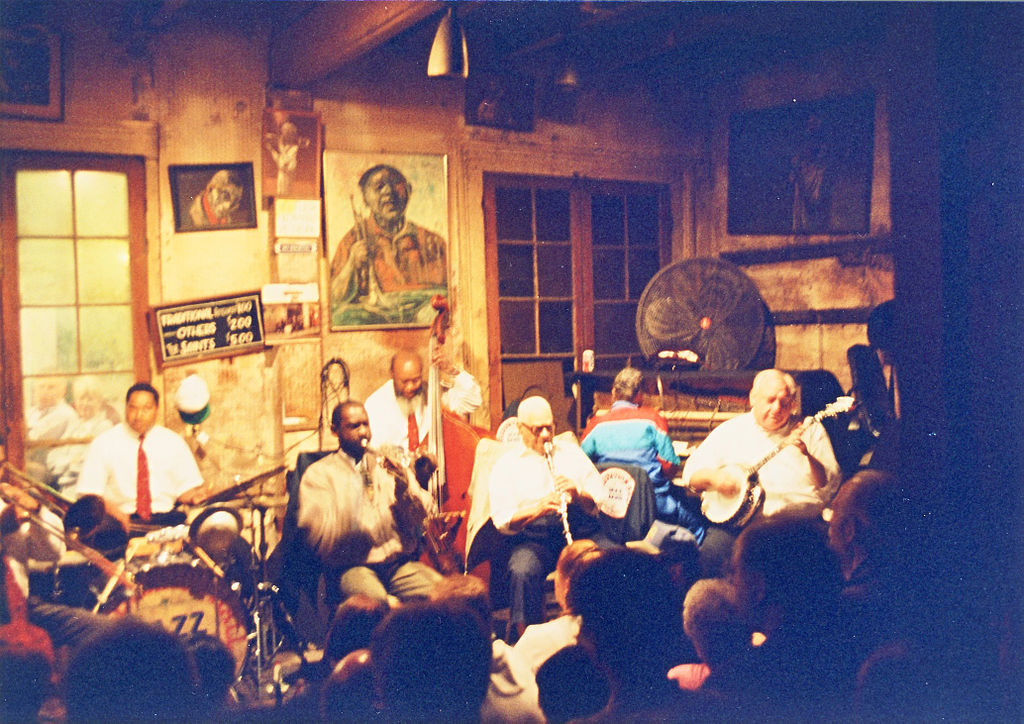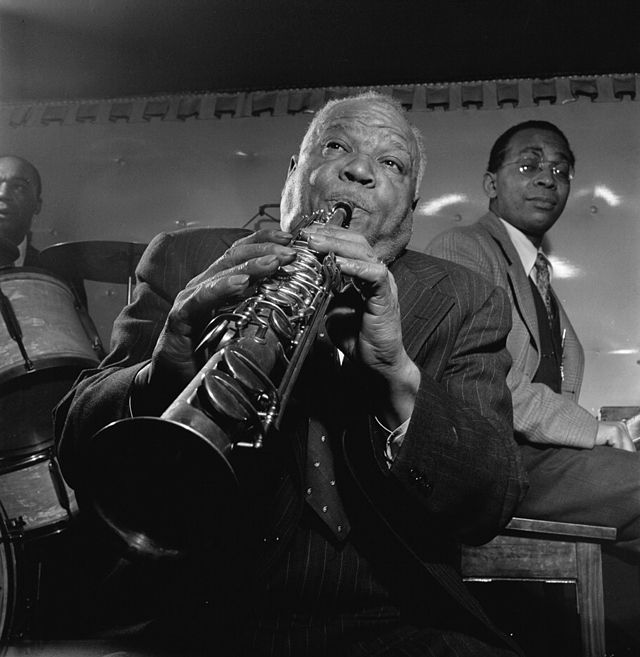
Skills and Roles in Early Jazz Bands
Contrary to conventional mythology, musical illiteracy was not endemic to early New Orleans jazz. Playing "by ear" frequently led to further musical training, including theory and arranging at the hands of teachers such as Manuel Perez or Lorenzo Tio, Jr. if the pupil desired it. To fulfill the requirements of a competitive market, most jazz bands combined performers with different skill levels. These included "readers" who introduced new material from scores, others were "spellers" who could follow a written chord progression but not sight-read notes, and non-reading "fakers" also known as "get off" men. Due to early training in church or at home, female pianists (such as Jeannette Kimball and Billie Pierce) were usually proficient readers. Yet all individuals aspired to create "voices" (unique musical signatures) of their own precisely because establishing a reputation as an exciting player with a specialty was the best way to get work.
In his day, Henry "Kid" Rena was esteemed as a "high note" trumpeter, while Buddy Petit was known as someone who could evoke an emotional charge from the mid-range of the instrument. Joe Oliver's specialty was "talking" cornet using mutes (developed when he was with Kid Ory's band in 1917), and according to Paul Barbarin, this talent led him to be crowned "King" in Chicago in 1919.
Pickup bands that included hastily recruited players known as "sidemen" supporting a core of regulars were typical in early New Orleans jazz. To remain viable, sidemen had to demonstrate a command of the repertory and playing techniques needed to cover work assignments. For instance, in Sam Morgan's Jazz Band, the adage "he who fall down, stay down" meant that musicians who faltered or missed notes had to quit playing. Competition for get off men was fierce because they were crowd pleasers, but a few bad experiences could ruin a reputation, especially if substance abuse was involved. Despite his talent as an improviser, Sidney Bechet earned a reputation locally for "blowing them up" (missing a job due to drunkenness), which became an incentive for leaving town for the vaudeville circuit in 1917.
Heebie Jeebies
Say, I've got the Heebies
I mean the Jeebies
Talking about
The dance, the Heebie Jeebies
Do, because they're boys
Because it pleases me to be joy
Louis Armstrong
Very few of the men whose names have become great in the early pioneering of jazz and of swing were trained in music at all. They were born musicians: they felt their music and played by ear and memory. That was the way it was with the great Dixieland Five.







